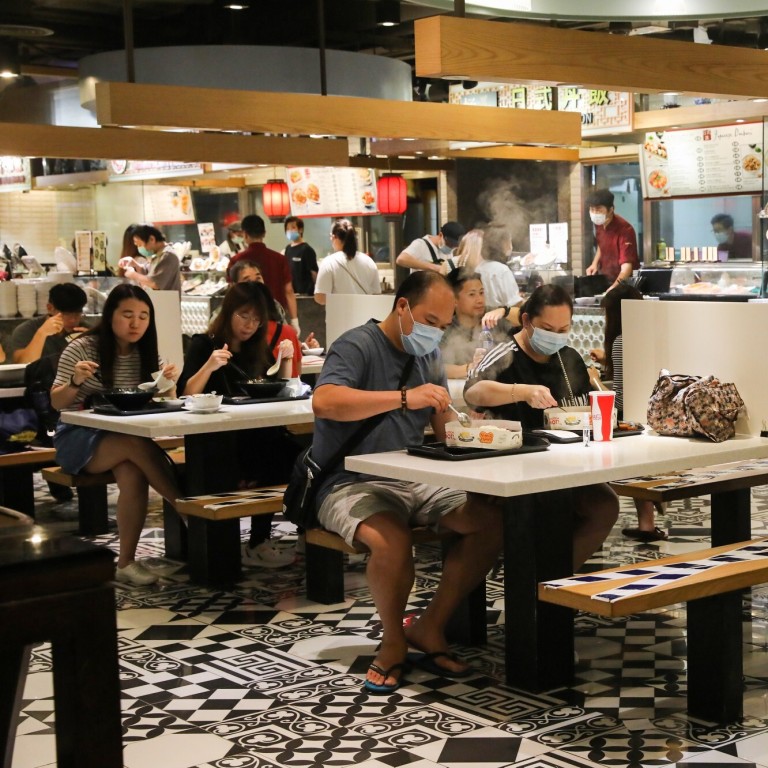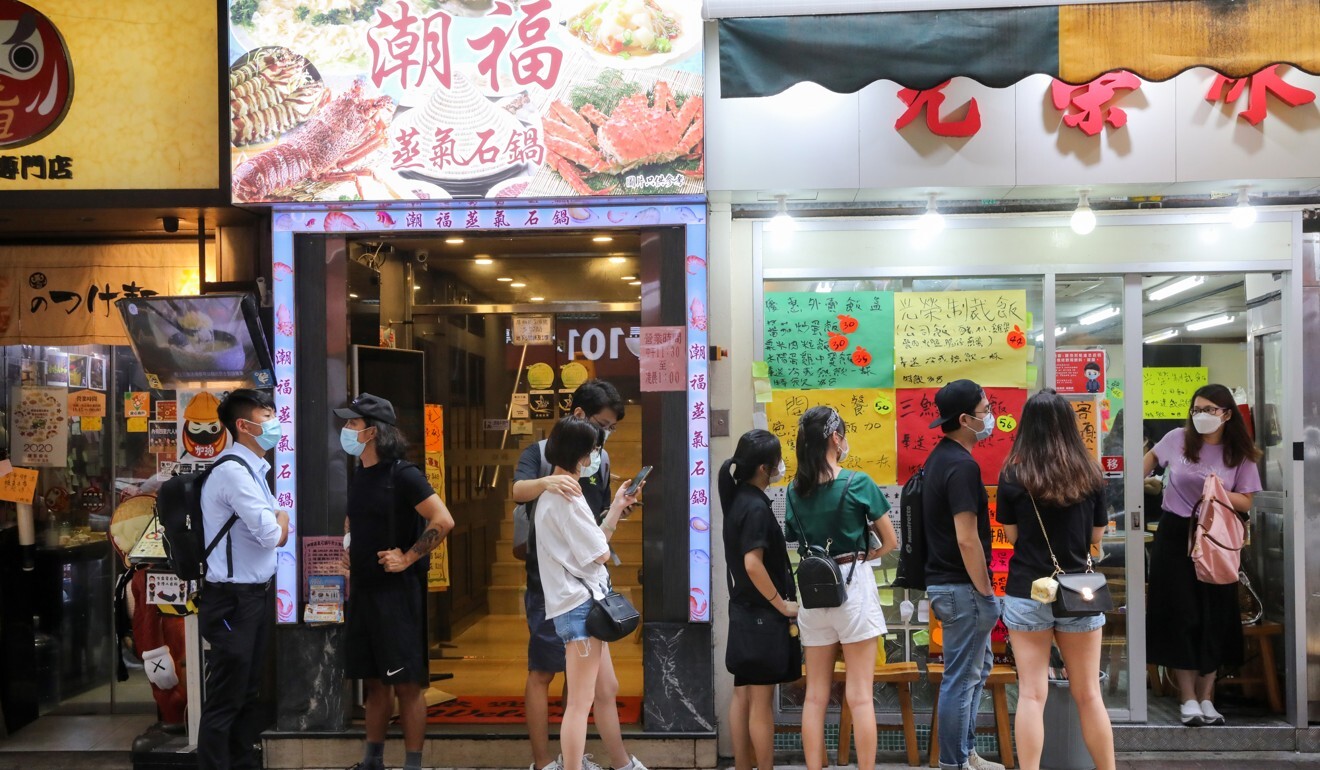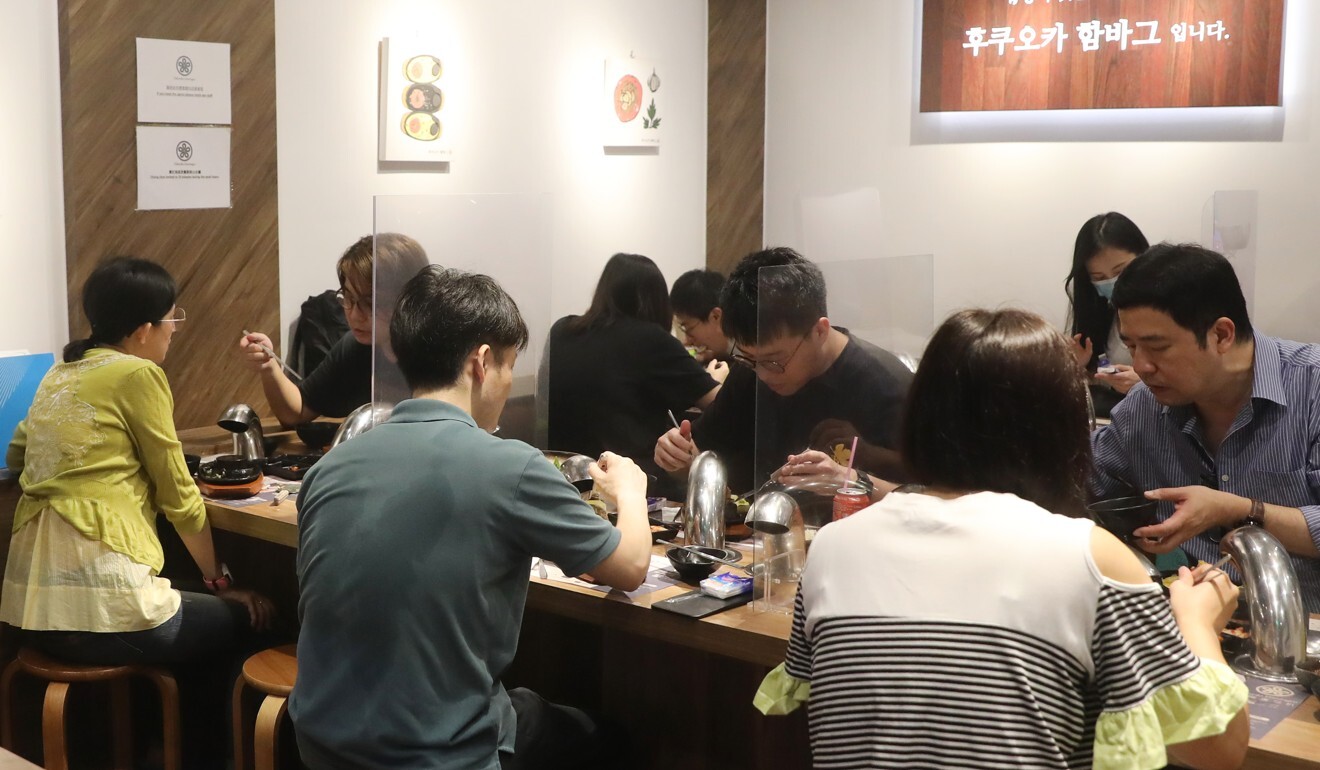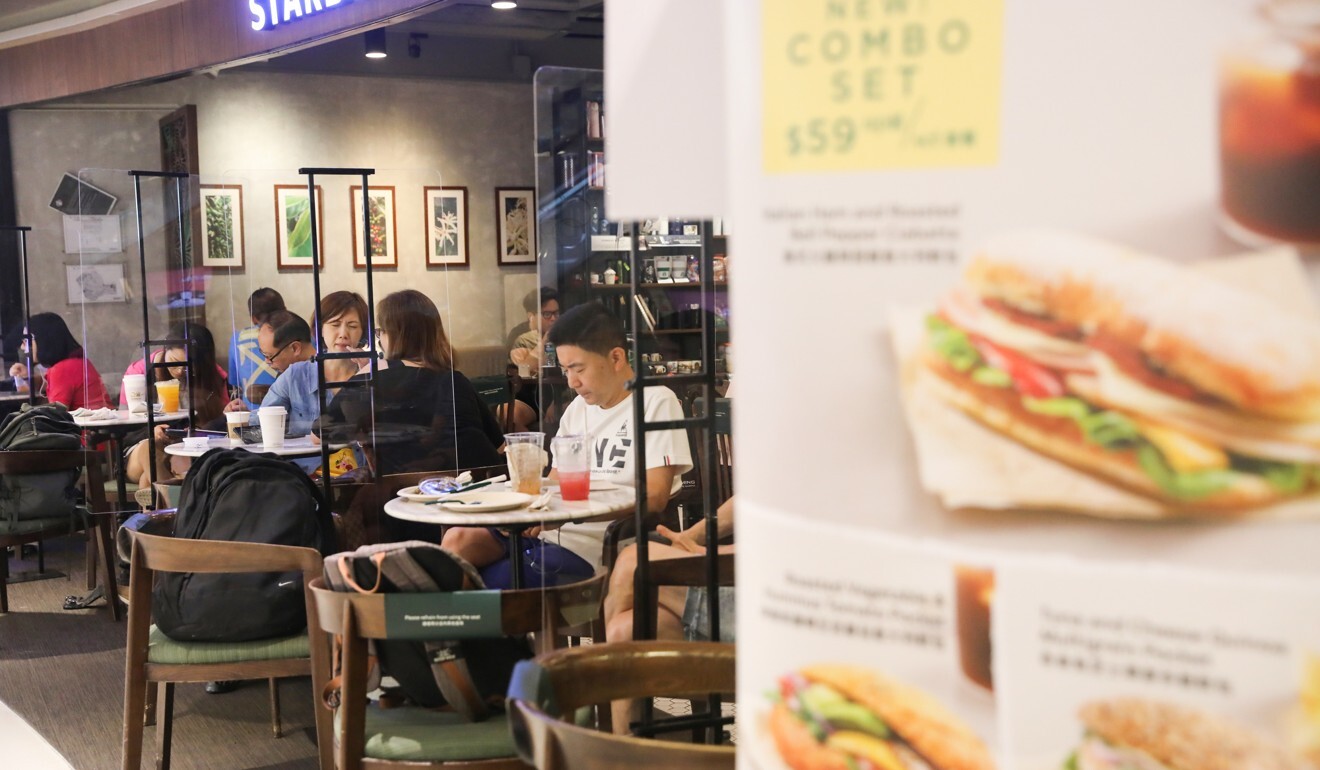
Coronavirus: Hong Kong restaurants get much-needed lift as evening dining ban ends, but many still feeling the pinch
- Smaller eateries tended to profit more from the rules relaxation, says industry figure, while city’s beauty parlours and cinemas got much-needed boost
- But some restaurants saw little reason to cheer, saying damage done by the pandemic has already sealed their fate
Hong Kong’s restaurants embraced a long-awaited lively evening on Friday as the government’s dine-in ban lifted at 6pm, a change that saw some eager diners returning to their favourite spots but many operators still gloomy about their prospects.
Businesses welcomed their first evening guests in nearly 1½ months after dine-in hours were extended by three hours to 9pm, and smaller eateries including local cafes and Japanese restaurants were packed with residents.
Similarly brisk business took place at cinemas and beauty parlours as they reopened earlier in the day, with companies enticing customers with special discounts.
But in Tsim Sha Tsui, the reopening got off to a quiet start.

On Hau Fook Street, the only restaurant with a queue was Kwong Wing Catering, a bing sutt restaurant known for its vocal support of Hong Kong’s anti-government protests.
“It’s good that they’re bringing back dining in,” said Emma Wong Kwan-shun, a 22-year-old student eating out with her parents. “It’s convenient for those living in the area.”
Cha chaan teng or local outlets in the district or fast food chains are doing good business tonight
“You could get [the coronavirus] even at home, since your family will go out of the house,” she said.
The scene in Mong Kok was more boisterous as night set in. After 7pm, the neighbourhood’s streets were filled with shoppers and couples looking for a bite.
As the makeshift stalls on Tung Choi Street were being disassembled for the day, the restaurants behind them were greeting their first batch of evening diners.
“The restaurant was packed with people,” Virginia Wong Wai-ching, 70, said as she was leaving a cha chaan teng, a type of local cafe, with her husband.
In the Grand Plaza shopping centre in the same district, Shanghainese restaurant Paradise Dynasty was crowded, and its employees had to use acrylic boards to separate customers.

Even with the restaurant set to close in less than an hour, eight people could be seen queuing for seats.
But earlier in the evening, another Chinese restaurant in the area was quiet. At 6pm, there were only eight people dining inside, and an employee said they had only about eight bookings for the night.
Simon Wong Ka-wo, president of the Hong Kong Federation of Restaurants and Related Trades said smaller eateries performed better than sprawling establishments that typically cater to large groups, due to the ongoing limit of two diners per table.
“Cha chaan tengs or local outlets in the district or fast-food chains are doing good business tonight,” he said.
The city government touted its decision to resume dine-in services as striking a balance between fighting the pandemic while recognising the need for social and economic activity.
Coronavirus: Hong Kong’s struggling restaurant sector not hopeful about profit rebound despite dining relaxations
Additional health guidelines in effect include prohibiting strangers from sharing tables and suggesting eateries use separate staff members to serve food and clean tables.
If these were not practicable, the government said restaurants should separate strangers by partitions, while workers should wash their hands or change gloves after each round of the tasks concerned.
But some who worked in Tsim Sha Tsui said the relaxation made no difference.
“Residents are still so worried about the pandemic,” said Yip Chun, a 29-year-old waiter at Thai restaurant Tiew Ruea Torcharm.
Yip’s restaurant had four tables filled when the Post visited just after 6pm, each with a single diner sitting behind a metre-high styrofoam board, a measure mandated by law.
Three restaurants on nearby Cameron Road went out of business in April, he said.
“The extension of dining in services from 6pm to 9pm is too short,” Yip said. “We used to be open till midnight for supper.”
Eatery owners have already lost millions of dollars in the pandemic to rent and wages.
Leung Kit-yi, who has served congee and noodles at Hung Kee Restaurant for 19 years, said the relaxation measures failed to bring back the queues that had disappeared since last year.
“The restaurant is already put up for sale,” she said as she took an order of fishball noodles from her only customer.
The landlord had not lowered their rent, she added.
“It’s so miserable.”
Businesses in the beauty industry appeared to be doing better.
Angela Chan Sau-yee, chairman of the Federation of Beauty Industry (H.K.)’s executive committee, said the number of bookings at the city’s beauty parlours averaged about 70 per cent of a normal Friday, with many workers reporting their bookings were “very full” even two days ago.

“I heard that some nail salons had long queues outside their shops,” Chan said, adding other businesses told her customers were already booking appointments for next week.
To lure patrons, she said some shops offered half-price for a variety of treatments, some of which had previously cost more than HK$1,000 each.
But Chan said that with business halted for weeks, small companies had been hit hard, urging officials to provide subsidies for them.
“We couldn’t contact some of the small shops today or saw they still remained closed. We are somewhat concerned,” she said, referring to the possibility that they might have gone out of business already. “I heard some businesses really couldn’t afford the rent.”
Meanwhile, movie lovers also flocked to the city’s cinemas to enjoy films in the morning and some theatres provided one-for-one discounts for members.


